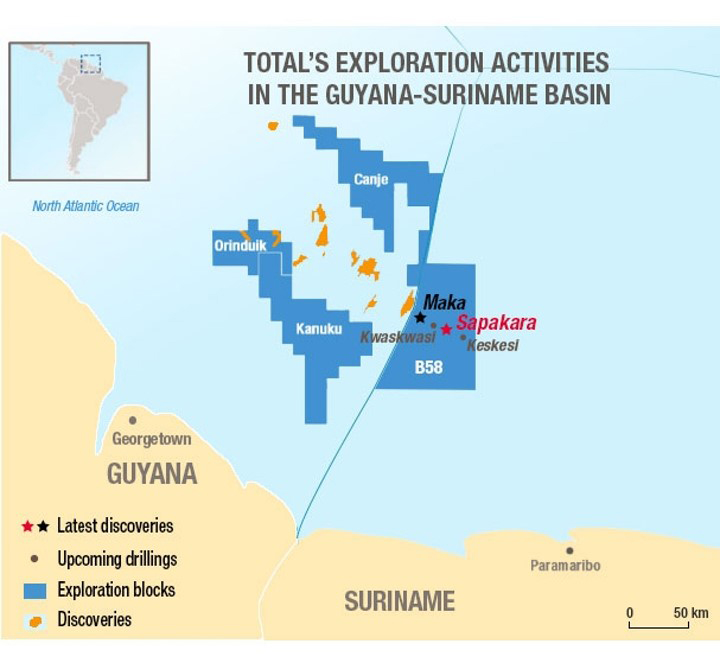(Reuters) – Oil producer Apache Corp and its joint venture partner Total SA said yesterday that they made their second significant oil discovery of the year in a closely watched area off the coast of South America’s Suriname.
Shares of Apache were trading more than 12% higher after surging nearly 21% at market open, on a day when oil stocks were generally stronger due to a recovery in global crude prices.
The discovery comes at a time when shale oil producers in North America are grappling with the worst oil price shock in decades, which has led several companies, including Apache, to cut spending for the year and slash dividends.
The conventional plays offshore Suriname are especially significant for Apache as it follows the U.S. oil and gas producer’s failed bet in the Alpine High region of the Permian basin, which has suffered from diving natural gas prices.
Apache’s second major find was made at the Sapakara West-1 well drilled offshore Suriname on Block 58, which comprises 1.4 million acres, the companies said yesterday, adding that the third and fourth exploration well locations in the block have been identified.
The well was drilled by a water depth of about 1,000 meters and encountered 79 meters net pay of high-quality volatile oil and condensate.
“We believe that, while still in the very early stages of exploration, the results from the Sapakara well further demonstrate what we believe to be the enormous potential of Apache’s offshore Suriname position,” SunTrust Robinson Humphrey analyst Neal Dingmann said in a note. Houston-based Apache last month unveiled deep cuts to its exploration budget, pledging to stop all drilling in the Permian basin and to scale back some international operations, in a bid to remain profitable despite the low oil prices.
The announcement also comes on the heels of a downgrade on Suriname’s debt by Standard & Poor’s, which cited the coronavirus epidemic, the fall in oil prices and an upcoming presidential election as risks the country could default.
Suriname President Desi Bouterse described the discovery as a “great gift.”
“This will be a lot of money for this small country,” Bouterse said in a statement.






